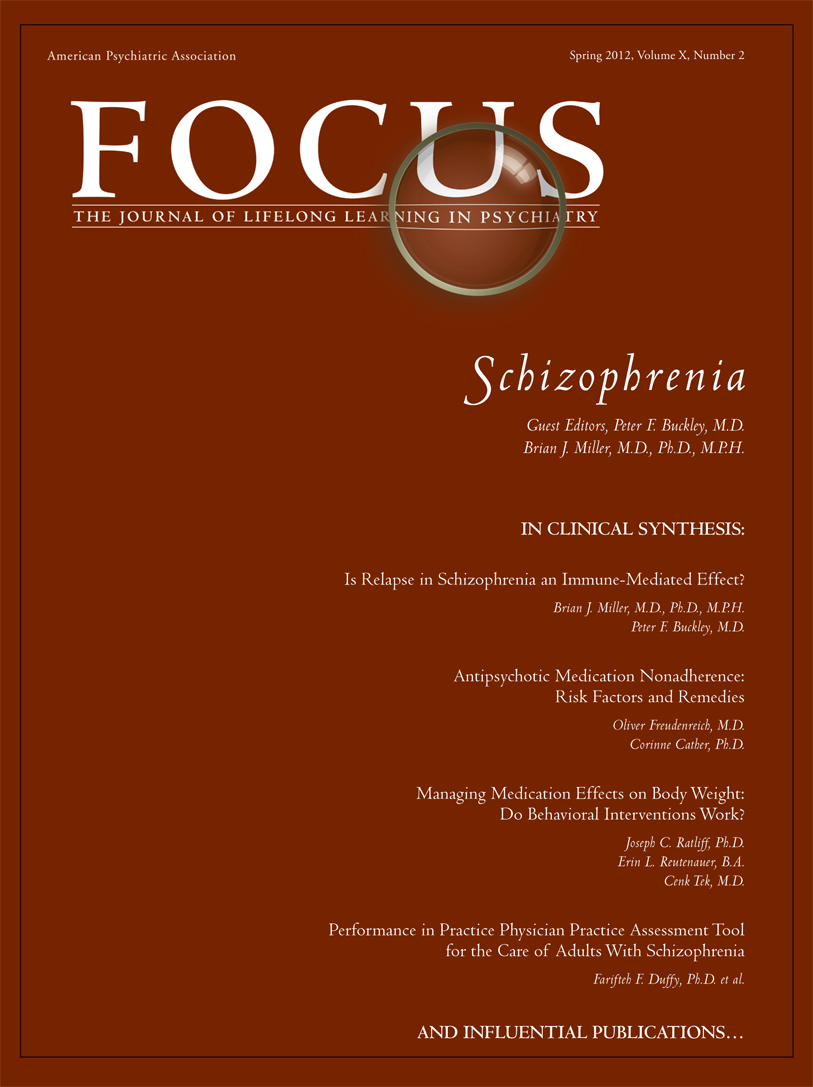Schizophrenia is commonly a chronic, debilitating disorder with life-long consequences for affected individuals. The clinical course is often characterized by recurrent relapses, which are associated with adverse outcomes, including treatment-resistant symptoms, cognitive decline, and functional disability. Physical and substance use comorbidity, as well as medication nonadherence are also the rule rather than the exception in schizophrenia. These are not only major risk factors for illness relapse, but also key contributors to the dramatic increase in premature mortality in the disorder.
This issue of FOCUS contains important information about the recognition and management of comorbidity and medication nonadherence in schizophrenia with “real world” applicability that hopefully will be of assistance to practicing clinicians. The longitudinal treatment of these factors contributes to the challenge of clinical care for these patients. Immune system abnormalities in schizophrenia, including inflammation, have been one of the more enduring findings in the field. Recently, positive findings from randomized, double-blind trials of adjunctive nonsteroidal anti-inflammatory drugs have generated renewed enthusiasm for the potential of immune-based treatments. Miller and Buckley review the evidence that for some patients, relapse in schizophrenia may be an immune-mediated effect.
Suboptimal antipsychotic medication adherence is common and difficult to detect in patients with schizophrenia, and plays a major role in illness relapse. Roughly 50% of patients take less than 70% of prescribed doses. Freudenreich and Cather examine important risk factors for medication adherence and offer practical “remedies” to improve adherence.
Patients with schizophrenia are disproportionately affected by obesity, and die 25 years earlier than persons in the general population, mostly due to obesity-related conditions such as diabetes and cardiovascular disease. Ratliff and colleagues appraise the available evidence on the efficacy of behavioral treatments for obesity in patients with severe mental illness, including lifestyle intervention concepts easily incorporated by individual practitioners in psychiatric practice.
There are also high rates of substance use in patients with schizophrenia, particularly alcohol, cannabis and cocaine. Comorbid substance use is associated with both medication nonadherence and illness relapse in schizophrenia, among other negative outcomes. Addy and colleagues provide a review of the epidemiology, consequences, assessment and treatment of comorbid substance use disorders in schizophrenia. Taken together, the careful consideration and management of these factors will improve the clinical care and quality of life for our patients.


